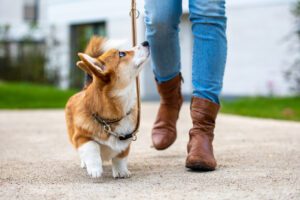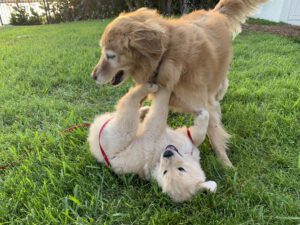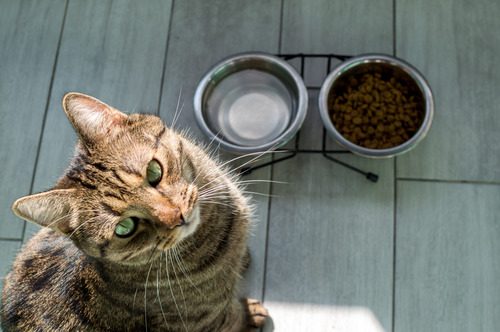5 Helpful Tips for Dog Socialization in Raleigh, NC
Owners typically underestimate the importance of socializing their pooch. This is easiest to do starting as a puppy, as before 16 weeks old is considered the “socialization window” for dogs. This is when a dog is at its most responsive and receptive to new things. Basically, this is when they have the least fear of the unknown. They will be happy to explore new scents, sights, sounds, people, and animals. The more exposure to the world, the better. It becomes more difficult to introduce anything new to a dog as they age out of puppyhood.
But of course many people adopt dogs as adults or seniors. And it turns out, you can indeed teach a grumpy old canine new tricks.
It is important for every dog to feel at the very least comfortable, safe, and happy in whatever environment they might be in. The following are some surefire tips for dog socialization in Raleigh, NC.

1. Take Your Dog on Walks Frequently
Taking your dog on a walk is one of the best methods to socialize them in Raleigh, NC. Walks are both stimulating and distracting, so a dog will be curious and excited rather than fearful while getting out and about. Exercise helps to lower stress and increase submissiveness, both very helpful during socialization.
And during the walk, it is likely your dog will at least see another dog and a few humans. Allowing your dog to first be an observer of other people, dogs, cats, and the world in general is the best way to start. A distanced and controlled meeting of another dog and human can be a good way to begin real socialization. Your dog will have to practice their good social behavior with you during walks. This practice, when social encounters are slowly introduced and increased, will train your dog to understand that being social can be comfortable, safe, and fun.
According to the famous dog whisperer Cesar Millan, if while on a walk your dog starts to bark or become agitated, it is important not to pull on the leash or raise your voice at the dog. This will only exacerbate the situation by exciting the dog. Doing so can cement in the dog’s social skills to associate a negative experience with other dogs and people. Maintain an assertive calm and distract your dog, quickly tug the leash to take them in a new direction, or simply touch them to gain their attention.
2. Have Family and Friends Over to Interact with Your Dog in Raleigh, NC
There is no need to push your dog into all new kinds of situations and meet a ton of new people. Especially if your dog is older and used to a slower social pace. However, it can be extremely beneficial to have friends and family over to introduce your new dog. Not only does this help your dog to socialize, but ideally these will be people your dog will see regularly. They should become used to the people in your life as a priority to anything else.
Allow one or two of your closest humans over to your house. This encourages your dog to be comfortable around new people, as they are in their own space. A calm and familiar environment makes all the difference. It also helps to ask your guest to use a friendly, high-pitched voice and to not initially approach the dog. Dogs often greet each other by turning to their side, a tactic any new human should use for a dog. Crouch down to get on the dog’s level as well, and do not stare. Simply invite the dog with your voice and gestures and stay positive.
If the dog does not welcome a new person with sniffing curiosity, give the human a few treats to offer to them. Treats (healthy ones that is) for a happy dog can’t be stressed enough.
3. Be Careful with Dog Parks
The dog park is not a place to first take a dog that is being socialized. The dog park is like a big dog party, pups of every size and attitude running around, barking, sniffing, and playing. It would be overwhelming to a puppy or an older unsocialized dog. This would be a step toward the end of social training.
If you feel your dog is nearing this step, walk them around the edge of the dog park. This again lets them be an observer rather than a participator. From here your dog can sniff some potential friends through the fence. Go slowly and award good behavior with treats. If your dog becomes nervous or aggressive, move them away and start again when they have calmed down.

4. Stay Positive While Socializing Your Dog
Remember that not all dogs need to go to the dog park. If your dog reacts well to small social encounters but does not like crowds, that is natural. It is possible your dog will not want to be social at all, except with you. Some dogs have had rough lives prior to our knowing them, and so are unable to have a positive relationship with any being besides their bonded owner.
Every dog is different. We should never force dogs to be more social than they want to be. Just like humans, some dogs are extroverts and some are introverts.
That being said, do not give up if your dog shows signs of positive social interactions. The potential is there, and it could simply be a matter of practice.
And we humans need to practice, too. Owners need to practice good training. Dogs are able to sense our emotions through body language and tone. Remaining calm and authoritative lets the dog know you are in charge and there is nothing to worry about. If you stay patient and keep up your dog’s and your own confidence, it is very likely your dog will adjust to being socialized.
5. Ask a Professional for Help Socializing Your Dog
When in doubt, ask a professional in Raleigh, NC. Whether they recommend doggy daycare or a special social training course for you both, it is sure to help your dog become socialized.
There is no need to rush your dog, but a new experience once or twice a week gives space between excitement and stress, as well as keeps up a good pace for efficient socialization. Call us today at (919) 488-5300
Recent Posts

Parasites in Dog’s Stool: Signs and Treatments

Why Is my Cat Not Drinking Water?

Common Causes of Eye Trauma in Dogs
About Us
At Companion Animal Hospital of Wakefield, our veterinarians in Raleigh, NC, provide better care for your pets. As members of your family, cats and dogs deserve the highest level of medicine with the most compassion. That’s why we put a strong emphasis on personalized care for your pet and client education for you. We believe that when we take the time to help you thoroughly understand your pet’s health, we’re able to make the best decisions for their care together.


